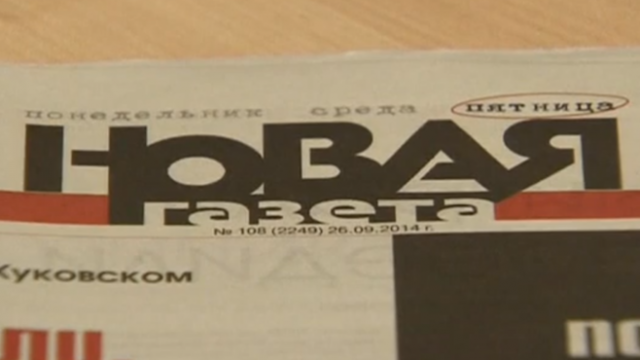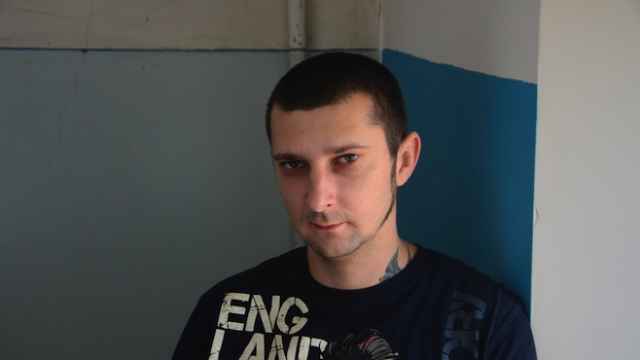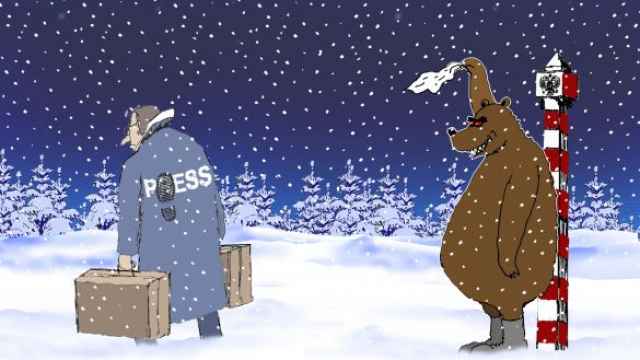Prime Minister Dmitry Medvedev condemned foreign countries who blacklist Russian journalists Thursday and said Russia has no intention of setting up its own blacklist, RIA Novosti reported, despite a series of recent incidents in which Western journalists have been prevented from working in Russia.
Medvedev said the barring of foreign journalists was politically motivated and a "disgrace," speaking at the Global Congress for the Russian Press this week.
The former president did not mention any countries by name, but several Russian journalists have been barred entry to Ukraine during the last year. State-owned media outlets have complained of their correspondents being turned away at the border on various technicalities — such as inadequately stating the purpose of their visit or not having sufficient money — and sometimes being refused entry without any explanation at all.
Although Medvedev said that Russia should not resort to such tactics in response, there have been a number of cases in recent years in which foreign journalists have been banned from Russia.
Last July, Russian authorities arrested Ukrainian journalist Yevgeny Agarkov, claiming he lacked proper accreditation to work as a journalist. Agarkov, who was covering the trial of a captured Ukrainian pilot charged with involvement in the murder of two Russian journalists killed reporting in Ukraine, was subsequently deported and banned from entering Russia for five years.
David Satter, an American journalist who had been living in Moscow, was barred from returning to Russia in late 2013 when he attempted to renew his visa in Kiev. The Foreign Ministry claimed Satter had violated migration law.
Satter, a vocal critic of President Vladimir Putin, cast doubts on the grounds of his expulsion, saying they were nothing more than a "smokescreen" and "nonsense."
Luke Harding, at that time The Guardian's Moscow correspondent, was also denied entry to Russia without initial explanation in February 2011.
Harding alleged the expulsion was directly related to his critical writings on the Putin regime. Several days after he was refused entry, the Ministry of Foreign Affairs said Harding could extend his visa if he wanted to.
Russia has been widely condemned for its lack of press freedom and treatment of journalists. The U.S.-based NGO Freedom House ranked Russian media as "not free" this year for the 12th year running, citing "an increase in propagandistic content in the Russian news media and tighter restrictions on dissenting views in 2014."
A Message from The Moscow Times:
Dear readers,
We are facing unprecedented challenges. Russia's Prosecutor General's Office has designated The Moscow Times as an "undesirable" organization, criminalizing our work and putting our staff at risk of prosecution. This follows our earlier unjust labeling as a "foreign agent."
These actions are direct attempts to silence independent journalism in Russia. The authorities claim our work "discredits the decisions of the Russian leadership." We see things differently: we strive to provide accurate, unbiased reporting on Russia.
We, the journalists of The Moscow Times, refuse to be silenced. But to continue our work, we need your help.
Your support, no matter how small, makes a world of difference. If you can, please support us monthly starting from just $2. It's quick to set up, and every contribution makes a significant impact.
By supporting The Moscow Times, you're defending open, independent journalism in the face of repression. Thank you for standing with us.
Remind me later.





